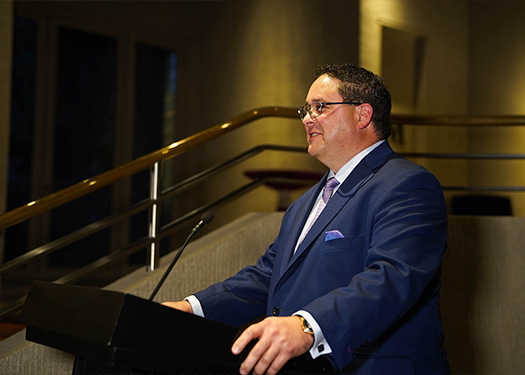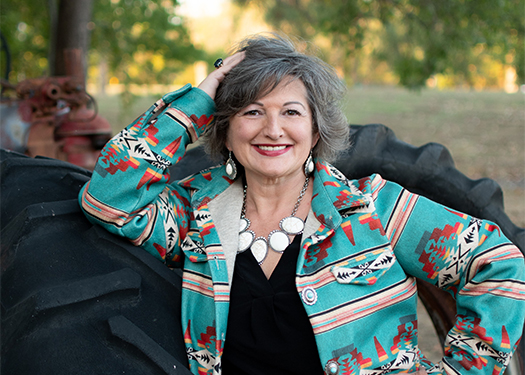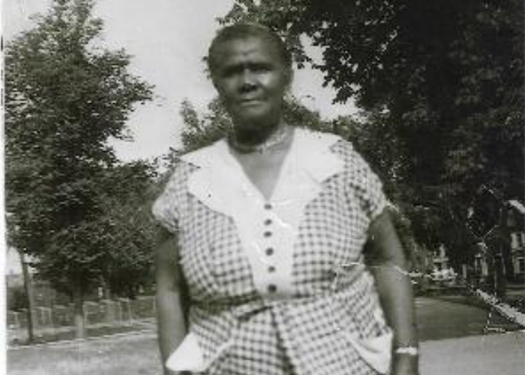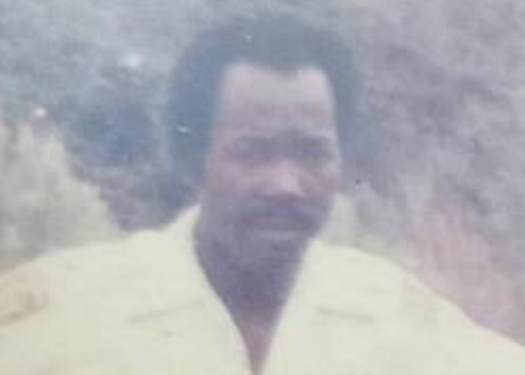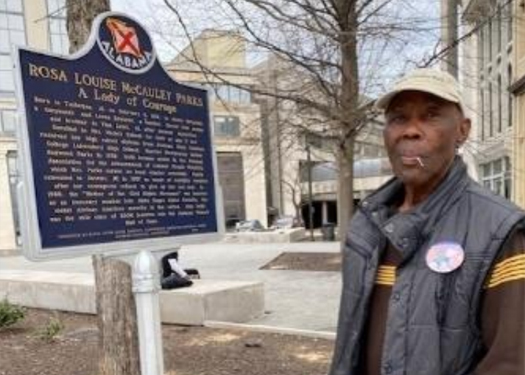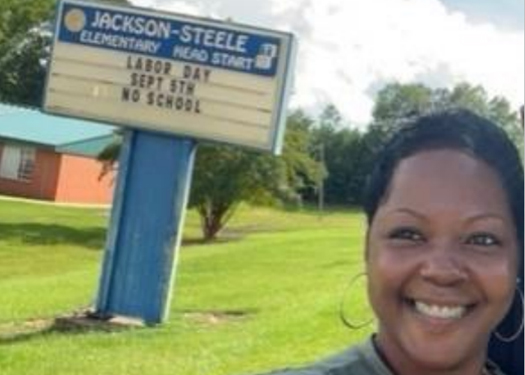Lumen Lede
Forgive Kina Steele if she tears up talking about her family and its roots in the Civil Rights Movement. Every triumph and tragedy experienced in her small Alabama community isn’t contained to one moment in time. Each is another brick in the walls of her family’s history – and it’s a legacy she will never allow to be forgotten.
As Black History Month begins, Kina’s story is one that truly honors the past. Her great-grandmother, Rosie Steele, opened her land to Martin Luther King Jr. on the March from Selma to Montgomery. Her father, Julius Bennett, was one of the first Black deputy sheriffs in the U.S.
“We grew up never seeing color... and still don’t. Our family only taught and preached fairness,” said Kina, a Lumen Field Marketing Manager and ABTP ERG member. “I sometimes get teased by others about being from Alabama – until they learn the contributions my family has made. I’ll always be grateful and proud to be from Lowndes County, Alabama.”
Welcoming MLK without fear
Much of Kina’s Alabama pride comes from her great-grandmother. Rosie Hunter was born in 1889 and had six children with Richard Steele. She owned her home, many acres of land, and a grocery store from which she helped neighbors feed their families.
In 1965, the world’s attention shifted to her small farm when she welcomed Martin Luther King Jr. and his Freedom Riders to camp on her property. When asked by the news media if she was afraid of retaliation by Whites, Rosie’s simply answered “I am not afraid. I have lived my three score and ten [70 years or a normal lifespan].”
Hosting MLK came at a price. Rosie’s general store in Hayneville was burned to the ground. Rosie passed away in 1975 but her legacy remains strong. To honor her contributions, White Hall Elementary was renamed Jackson Steele Elementary School for Rosie and Matthew Jackson, another Civil Rights activist who opened his “Freedom House” to Student Nonviolent Coordinating Committee (SNCC) members in the 1960s.
Her land is now part of the Selma to Montgomery National Historic Trail, one of three campsites on the 54-mile stretch covered by MLK and the Freedom Riders.
Family members of the three landowners met for the first time on March 21, 2021 and walked together across the Edmund Pettus Bridge in Selma to mark the 56th anniversary of the start of the March. Their stories are part of the 54 Miles to Home documentary. Among the group was Kina’s father, Julius Bennett, who altered history and his family’s legacy a few years after Rosie’s interaction with Martin Luther King Jr.
Changing the face of law enforcement
In 1972, Lowndes County Sheriff John Hulett, who was Black, took Julius on as a special duty police officer for three months. Shortly after, Julius became the first Black chief deputy sheriff in Alabama and one of the first in the U.S.
Initially, he didn’t want to be a peace officer. “Only after shadowing Sheriff Hulett did I see a different perspective of being a deputy,” Julius said. “I found that only 2% of the job was arresting people. The rest was spent helping people in my community.”
He joined the Lowndes County Sheriff’s Office at a time when law enforcement often abused Blacks. He believed that shadowing Sheriff Hulett showed him what it meant to be an officer. “Communities need help from officers, not harm, just because of their race,” he said.
For Kina, her father patrolling the streets was both rewarding and frightening. “Although the Black community respected him, most Whites were envious. As his children, we were frightened that his life would be taken. It was frightening because of the boldness of racism.”
For 21 years, Julius patrolled and served the community he loves. Now 79 (he was born on June 19, 1943 – Juneteenth), he devotes time to the Julius Bennett Hope Scholarship when he’s not farming. The scholarship assists Lowndes County graduating seniors with college tuition. It’s another way Julius wants to keep giving back.
As for his legacy, Julius wants future generations to persevere through life’s trials and focus on helping others. “Always say and do the right thing, especially in front of children,” he shared. “Children mimic what adults do. If we want a society of children doing the right thing, it starts with us.”
Make a difference
To support the Julius Bennet Hope Scholarship, click here.

